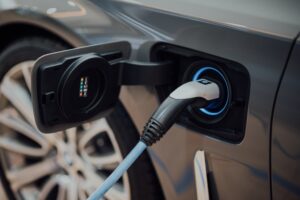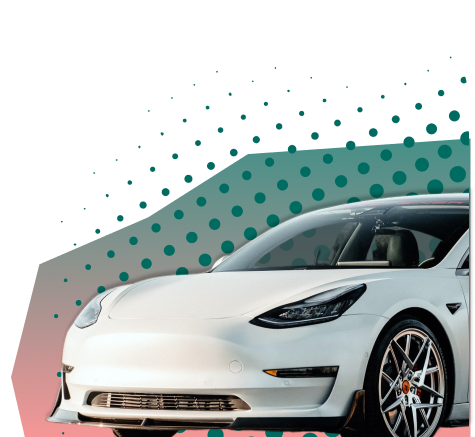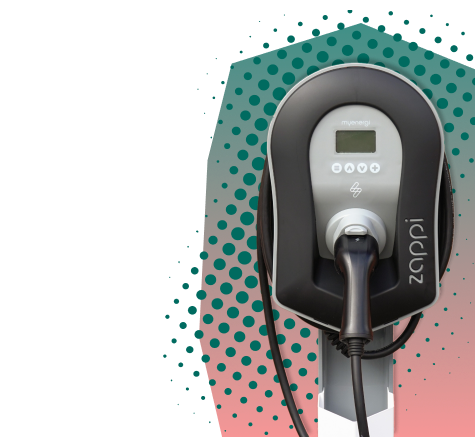Since electric vehicles have entered the market, sales have soared. Only around 17,000 electric cars were on our roads in 2010, but by 2019, the number has ballooned to 7.2 million.
Policy announcements led by governments around the world have been critical in accelerating the EV rollout. Direct subsidies and policy approaches like zero-emission vehicle mandates and fuel economy standards have become clear indicators to the auto industry and consumers that the move towards sustainability is the future.
But which country is leading the way when it comes to reducing carbon emissions on our roads? We take a look at the top performing countries regarding EV sales, EV shares and EV charging points.
The Top 5 Countries Leading The Electric Vehicle Market:
-
China
By far, China has the largest market for electric cars. A record 1.3 million EV’s were sold in 2020, representing 41% of global EV sales. Of these EVs, the made-in-China Tesla Model 3 and the Hongguang Mini EV dominated sales, representing 1 in 5 of all EVs sold across the nation.
An excellent network of public EV chargers, directive government support and strong consumer demand are behind the EV uptake in China to cut China’s CO2 emissions to zero by 2060. At the beginning of this year, emission quotas were tightened to help EVs reach 20% of new car sales by 2025.
New models entering the market have also been a game-changer, giving consumers more choice and increasing competition between brands. Tesla’s success in China drove the formation of domestic EV startups, such as NIO who offer three premium SUVs and Xpeng, positioned as more affordable than some rival Tesla models. Alongside more choice, the smart technology that EVs offer is incredibly attractive to Chinese customers, tilting the market in favour of EVs and away from conventional cars.
Undeniably, China is racing ahead.
-
Norway
A clear runner up in the EV race, Norway is the first country in the world where EV sales overtook those powered by petrol, diesel and hybrid engines. Battery electric vehicles (BEVs) made up 54.3% of all new car sales in 2020, up from a measly 1% a decade ago. Audi topped the 2020 leaderboard with its e-Tron sports utility and Sportback vehicles as the most sold new passenger cars in Norway.
The impressive numbers fall to Norway’s ambitious plans to become the first nation to end the sale of petrol and diesel cars by 2025. Policies that exempts EVs from taxes imposed on those relying on fossil fuels have been put in place, making the country a ‘laboratory’ for carmakers seeking a future without combustion engines.
-
The Netherlands
A new EV market breakout is evident in The Netherlands, swiftly making ground behind Norway in the EV race. In 2020, 21% of all newly registered cars were battery electric vehicles (BEVs) and 4% were plug-in hybrid electric vehicles (PHEVs), exiting 2020 with an all-electric vehicle market share of 69%. This high rate of uptake is a testament to the progressive electric vehicle policies implemented over the past several years.
Driving the electrification of the vehicle fleet is the Dutch government, offering incentives designed to reduce the cost for buyers and owners of an electric vehicle to support their zero-emission transport strategy. Individuals purchasing or leasing a BEV can claim back €4,000 and benefit from a one-time registration tax and annual ownership taxes, all whilst conventional engine vehicles are charged particularly high taxes compared to other European markets.
-
The UK
In an effort to ban the scale of new petrol and diesel cars by 2030, the UK is making headlines in the rollout of EV charging stations. The number of “ultra-rapid” electric vehicle charging points at motorway service stations and on key trunk roads in Britain will triple to more than 2,700 under a £300m two-year programme. Unlike charging points installed on driveways or at offices that take several hours to charge, superfast charging points can replenish a battery in 20-40 minutes.
The development of infrastructure aligns with rapidly growing sales. 2020 witnessed the biggest annual increase in the number of registrations, with more than 175,000 electric vehicles registered, showing a growth of 66% compared to 2019.
-
France
Europe’s second-largest auto market is slowly becoming a big contender in the EV race. April 2021 witnessed plug-in electric vehicles double from April 2020 to 14.8%. But what makes France stand out in this race is the government’s unique incentive to accelerate the rollout of EV and rechargeable hybrid cars.
One of the biggest and well-known policies in place is the environmental bonus, a subsidy from the French government designed to encourage people to buy vehicles with low or very low emissions. The goal is to accelerate the conversion to electric, hydrogen-powered and rechargeable hybrid cars to achieve carbon neutrality by 2050. French citizens can be eligible for a bonus of up to €7,000 for the purchase of an electric vehicle costing less than €45,000 and emitting less than 20g CO2/km, for example.
It is clear that China and Europe are winning the EV race. EVs are now more accessible, available and accepted across the globe to eventually eliminate petrol and diesel cars from our roads.
Reliance on technical teams is paramount to make ground-breaking innovations in a competitive EV market. We can help build out these technical teams via our Consultants who are experts in their specialist markets. If you need support in scaling your mobility company or advice in doing so, be sure to get in touch.













